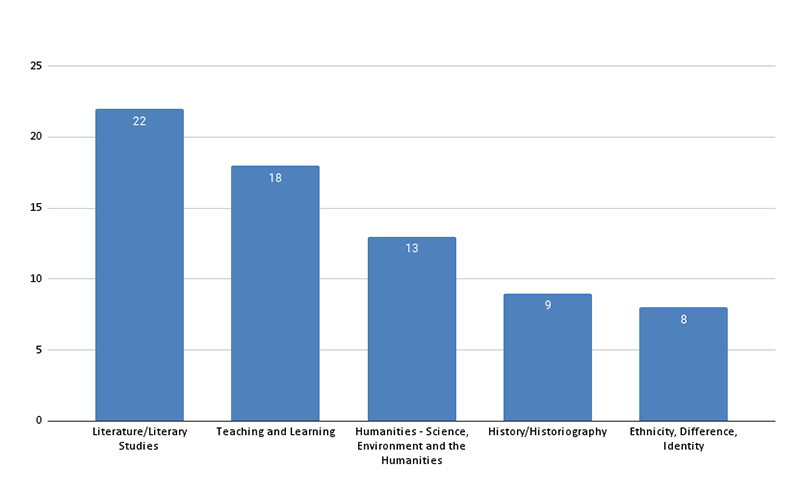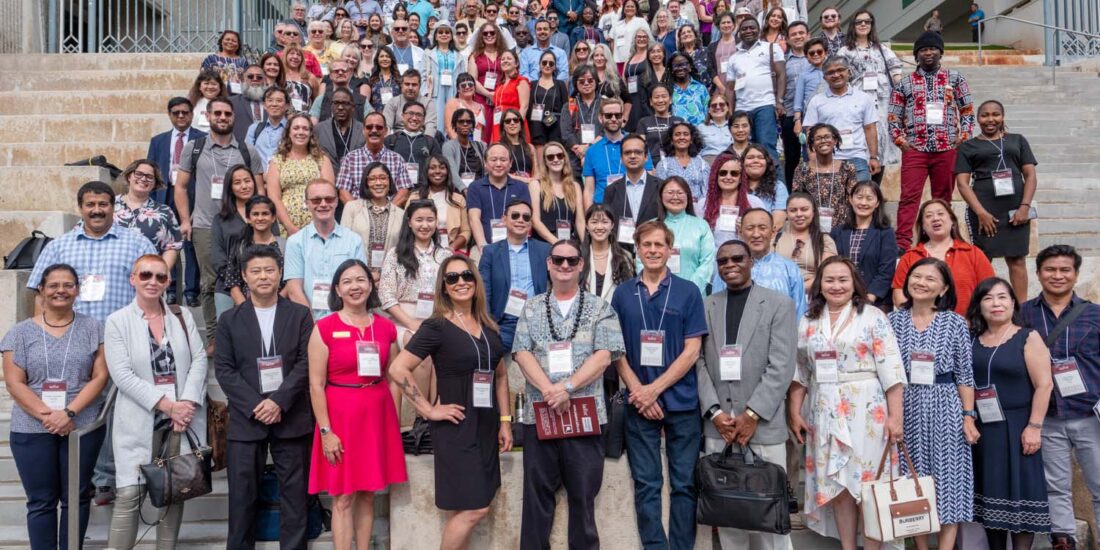Right at the start of the new year, academics, professionals, and graduate students came together at The 9th IAFOR International Conference on Education (IICE2024), which was held alongside The 4th IAFOR International Conference on Arts & Humanities (IICAH2024) in Hawaii to discuss pressing issues in these fields, exchange ideas, and network.
We are at the precipice of transforming a great tool such as Artificial Intelligence (AI) into a catalyst for innovative students and burgeoning research. In order to unlock this potential and avoid any pitfalls, its users must be trained to critically think about how to query AI systems as well as interpret the results generated with a critical eye. Critical and creative thinking can be enhanced by using various sources of information, notably from the environment around us. Keeping local knowledge and culture alive provides a basis for remedy. One of the main key takeaways from this conference is that the interaction between Education, the Arts & Humanities, and interdisciplinarity in general is essential in this process.
The discussions on Education centred mainly around the rising popularity of AI as the major catalyst of possible growth, with significant reservations from both experts and educators in the audience. Both the featured interview with Mr Kālewa Correa, Curator at the Smithsonian Institution, and the panel discussion chaired by Professor Michael Menchaca of the University of Hawaiʻi at Mānoa emphasised the importance of demystifying AI as a robber of creativity and the onset of human existential crisis.
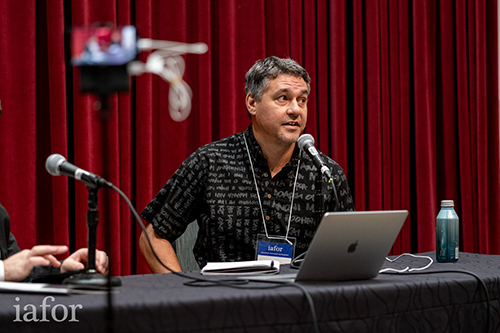
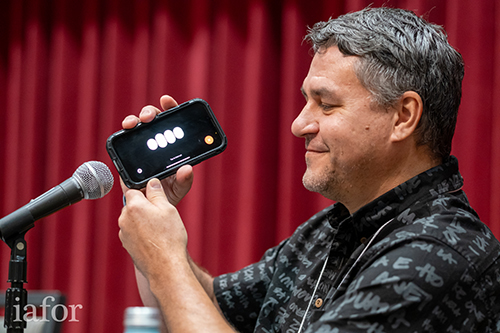
Defined as "bringing together information in a way that makes sense", Mr Correa discussed curation in relation to AI in the conference’s featured interview, Questions of Education, Curation and Artificial Intelligence. AI should not be seen as casting humans obsolete or robbing them of their creativity because there can be many different ways of curating AI, depending on who curates and what questions they are asking, making the product of AI highly personalised. However, the question of 'Who curates?' immediately raises concerns about political bias and cultural relevance within curated information. Institutions' role in the future is seen as one of cross-checking datasets and making sure that marginalised voices are included in the curation of knowledge. AI should be seen as a tool which, if used in a way that connects humans and improves our intelligence, could bring forth a Golden Age for humanity.
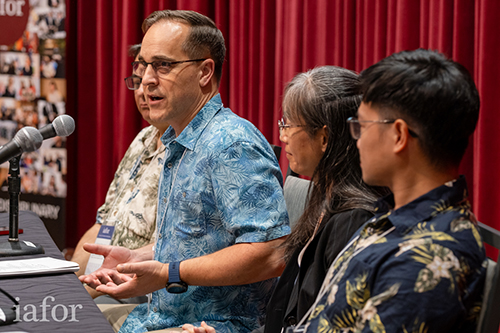
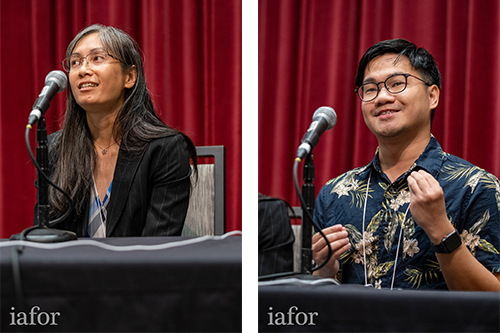
This statement was echoed by the panel on Practical Approaches to AI in Academia, where Dr Paul McKimmy, Dr Chih-Pu Dai, and Ms Dorothy Hirata argued that it does not matter whether the tool abides by the law if the error can be avoided in the first place. As a remedy for the potential dangers of AI, all three professionals agreed that the product of AI should not be used if students cannot evaluate it. In order to evaluate it, students need to know how to do the task themselves. From this flows practical solutions to the misuse of AI, which have to do with the redesigning of assignments to make AI less useful, teaching when the use of AI is acceptable or not, developing AI literacy in both educators and students, and teaching students how to critically evaluate the AI-generated information. By getting familiar with both the dangers and the potential of AI, the demystification of it can unlock tremendous potential for the future of education and knowledge.
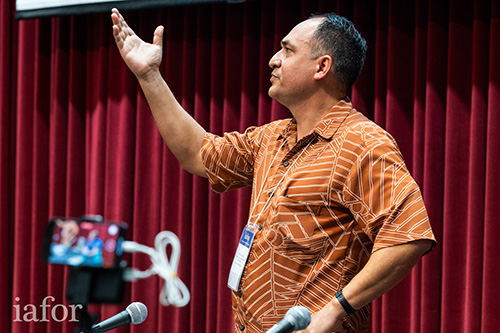
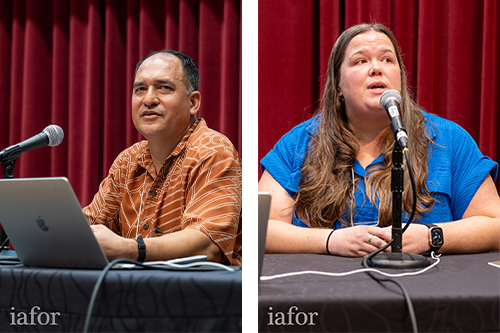
As a complementary tool to AI, the Arts & Humanities are seen as an inclusive way of sharing culturally-relevant local knowledge and culture in the two panels on Hawaiian Culture and Learning from the Ocean and Moananuiākea – A Voyage for Earth. Professors Kali Fermantez and Esprit Saucier from Brigham Young University-Hawaii discussed how they link Hawaiian culture and sustainability into their curriculum during their panel presentation on Hawaiian Culture and Learning from the Ocean. The panel highlighted how local cultural information is relevant in interdisciplinary discussions, from social and political sciences to environmental sciences and biodiversity.
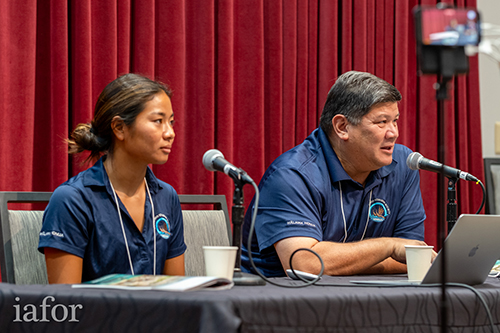
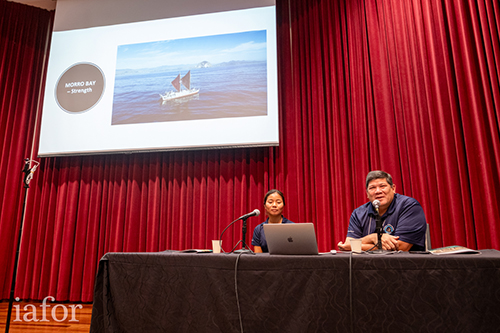
Similarly, during the panel on Moananuiākea – A Voyage for Earth, Kai Hoshijo and Mark K. Ellis from the Polynesian Voyaging Society shared their experiences in inspiring students and communities to care for their cultures, environments, and themselves. The panel emphasised the importance of experiences in making observations and decisions, resiliency, and the value of caring for one another along the voyage in helping students – as the voyagers – to make better decisions in their lives and create brighter futures for themselves and the world.
Holding two different thematic conferences together inspired interdisciplinary talks that provided delegates with a better understanding of how humanity can move forward in the new age of AI. Harnessing its strengths to improve the preservation and creation of knowledge that is bereft of political and cultural bias can lead to the conservation of our environment and a more harmonious society. The enthusiasm with which attendees asked multiple questions during the lengthy Q&A sessions was a testament to the timeliness of these topics in academic and professional debates. The conference was seen by many attendees as a successful attempt to bring together academics and practitioners to interactively discuss the practical and theoretical issues of trust, authenticity, creativity, and representation they are experiencing both in the classroom and within society.
It is notable that there was a significant number of new attendees among delegates at the conference, highlighting IAFOR's capability of drawing in new voices and perspectives. For returnees, this constitutes a positive development in the direction of pre-existing academic debates, as old ideas are enhanced by new insights born out of the experiences of younger academics and practitioners. This allows for academic discussions to be held on zeitgeist issues that are seen from both sides, making the IAFOR conference experience valuable for both first-time attendees and returnees.
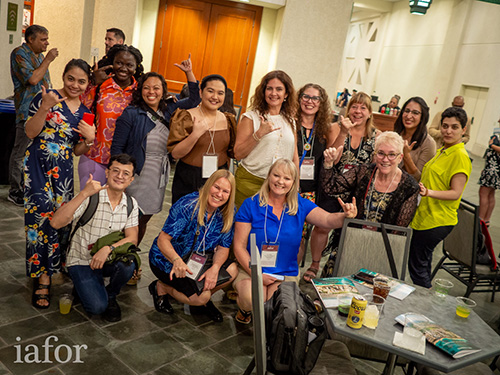
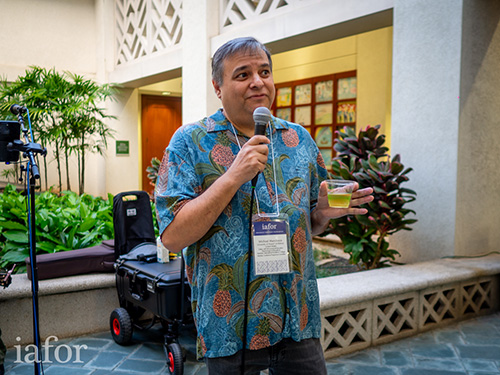
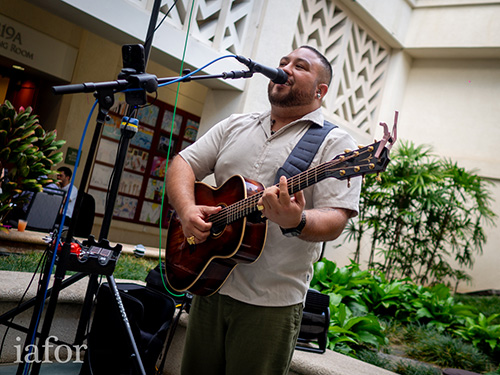
While the heart of IAFOR conferences undoubtedly lies in their formal presentations, intellectual and cultural exchanges among attendees are also a cherished component.
Kicking off the conference before plenary day was the Welcome Reception. Featuring live music from singer and bassist of Nā Hōkū Hanohano award-winning group Walea, Kings Kalohelani, the Welcome Reception was the perfect opportunity for conference delegates to get a head start on the conference and make valuable connections with other attendees.
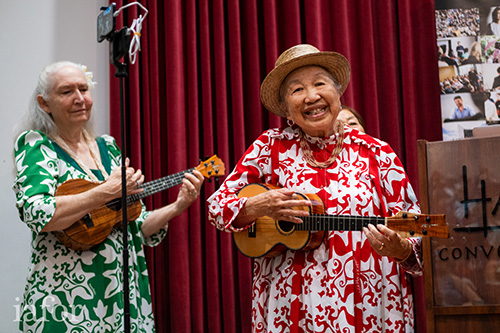
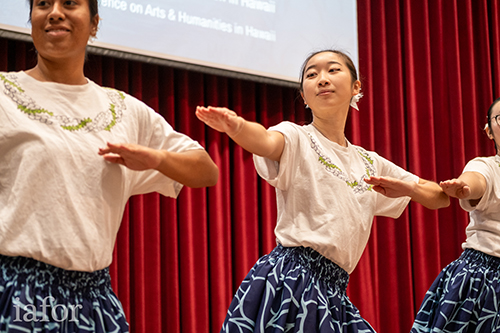
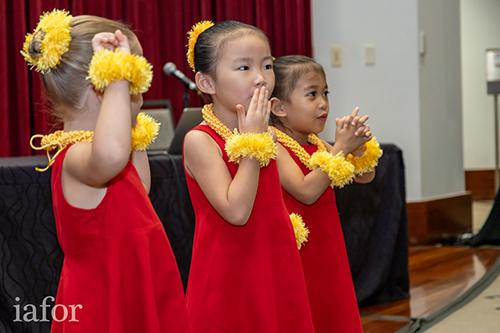
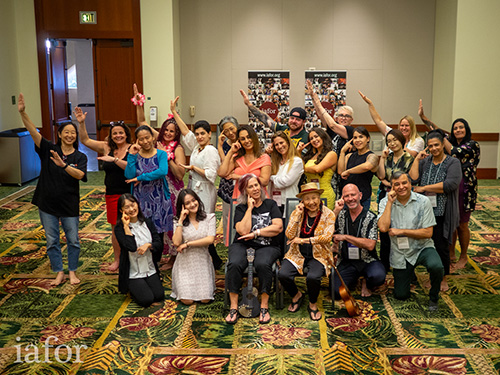
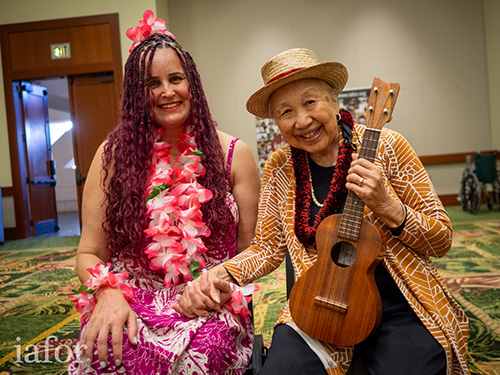
Plenary day was opened with a cultural presentation from local Hawaiian legend and Living Treasure of Hawaii, Auntie Carolee Nishi, whose troupe of dancers and musicians delivered an Oli to welcome the conference delegates in the spirit of Aloha. Auntie Carolee and her daughter, Robyn Nishi, a hula teacher at Nu‘uanu YMCA, also delivered music and dance workshops, E Hele Mai a Hula, later in the conference, giving attendees an opportunity to network, unwind, and embrace this vibrant Hawaiian tradition in a fun, interactive setting.
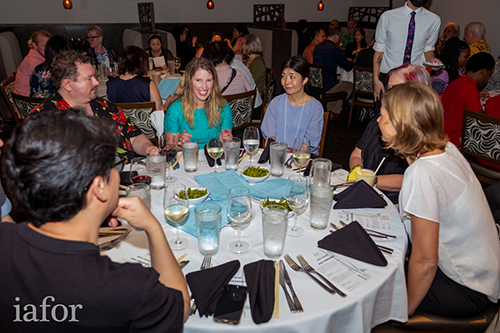
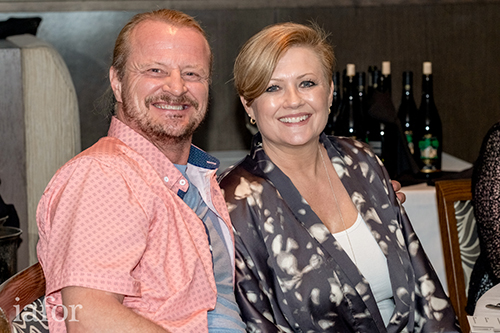
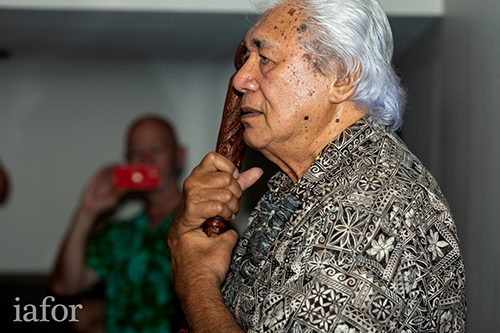
Delegates enjoyed a memorable dinner at Roy's Waikiki, a culinary gem renowned for its fusion of Hawaiian and Asian flavours. This iconic restaurant, celebrated for its vibrant atmosphere, offered a perfect backdrop for an evening of engaging conversations and gourmet dining. The event was opened with a toast by Polynesian aliʻi and senior heir of the Malietoa warrior king line of Samoa, and Conference Programme Committee Member, Dr Failautusi ‘Tusi’ Avegalio.
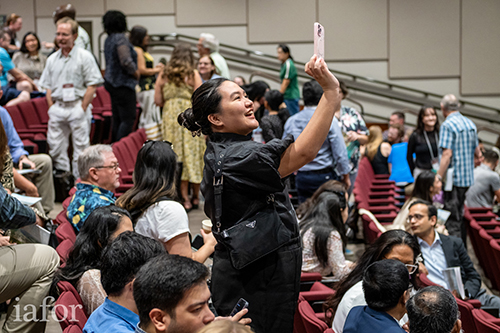
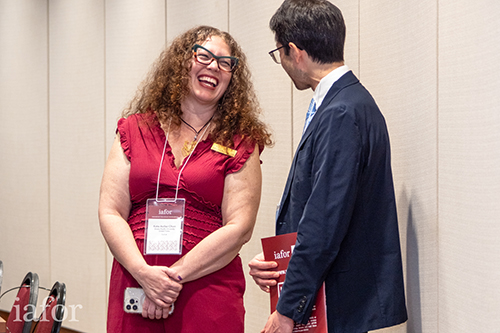
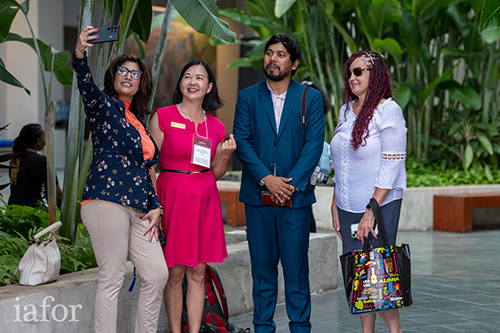
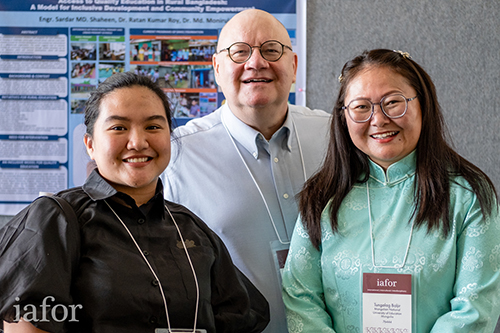
As we look towards future events, we are grateful to the speakers, participants, and Conference Programme Committee for their commitment and contributions. For those who missed out, online catch-up options and high-quality recordings of plenary presentations are available on the conference website.
Conference Statistics
Delegate World Map & Country Breakdown
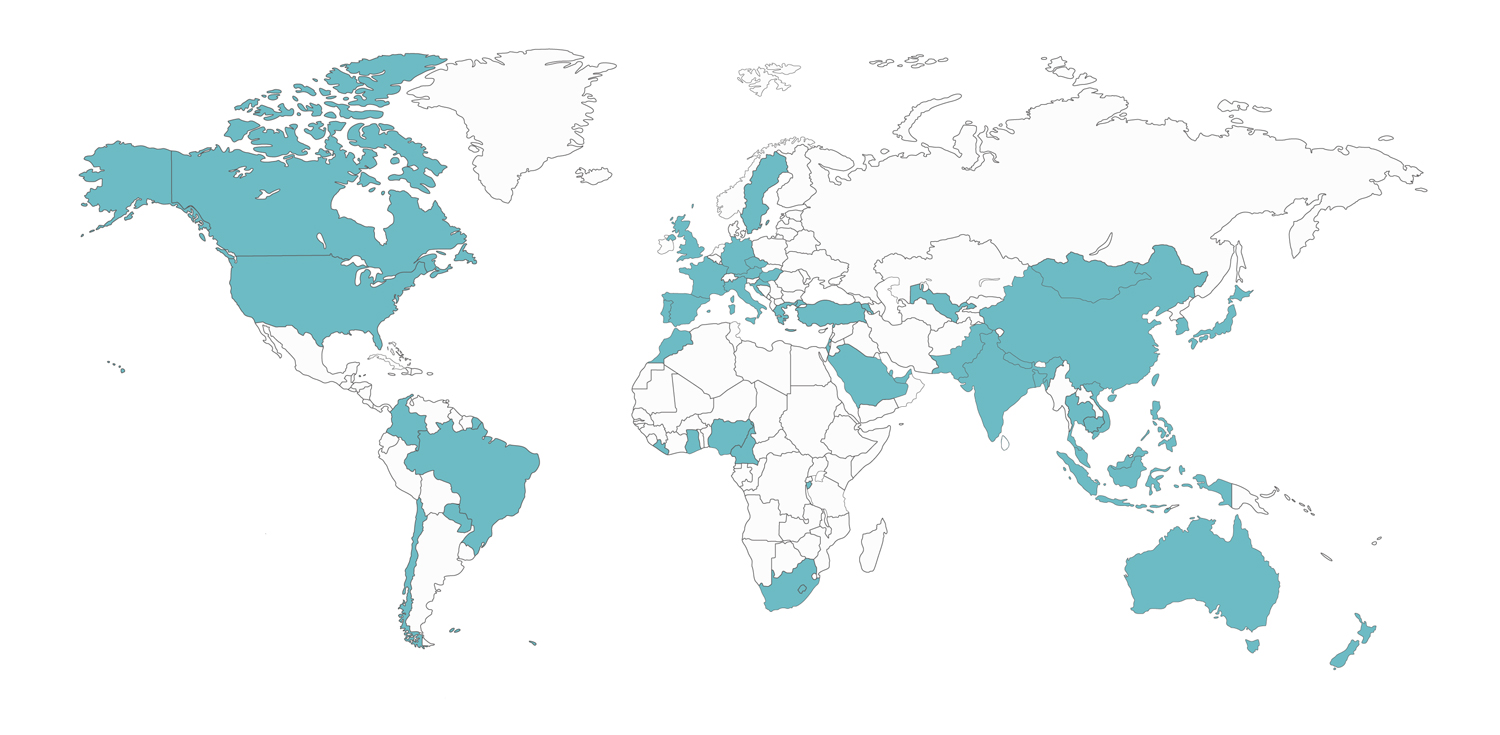
Total Number of Attendees: 650
Total Number of Countries Represented: 52
| Country | Count |
|---|---|
| United States | 251 |
| Japan | 103 |
| Canada | 68 |
| South Korea | 35 |
| India | 16 |
| Philippines | 14 |
| China | 13 |
| Taiwan | 13 |
| United Kingdom | 10 |
| Australia | 8 |
| Saudi Arabia | 8 |
| Hong Kong | 7 |
| Mongolia | 7 |
| South Africa | 6 |
| Thailand | 5 |
| Germany | 4 |
| Ghana | 4 |
| Pakistan | 4 |
| Spain | 4 |
| Vietnam | 4 |
| Bangladesh | 3 |
| Greece | 3 |
| New Zealand | 3 |
| Portugal | 3 |
| Singapore | 3 |
| Colombia | 2 |
| Country | Count |
|---|---|
| Croatia | 2 |
| Israel | 2 |
| Malaysia | 2 |
| Nigeria | 2 |
| Rwanda | 2 |
| Turkey | 2 |
| Uzbekistan | 2 |
| Armenia | 1 |
| Brazil | 1 |
| Cambodia | 1 |
| Cameroon | 1 |
| Chile | 1 |
| Czech Republic | 1 |
| France | 1 |
| Hungary | 1 |
| Indonesia | 1 |
| Italy | 1 |
| Lesotho | 1 |
| Liberia | 1 |
| Morocco | 1 |
| Nepal | 1 |
| Paraguay | 1 |
| Qatar | 1 |
| Sweden | 1 |
| Switzerland | 1 |
| United Arab Emirates | 1 |
Single vs Multiple Author Registrations
IICE & IICAH2024 Single vs Multiple Author Registrations
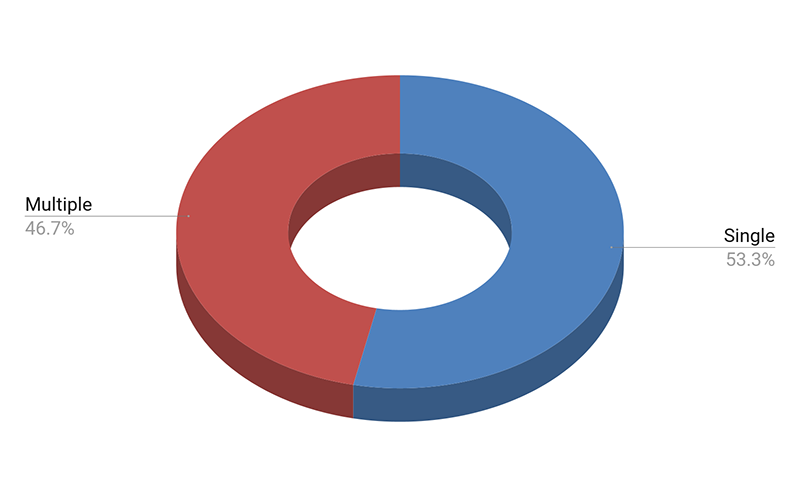
IICE2024 Single vs Multiple Author Registrations
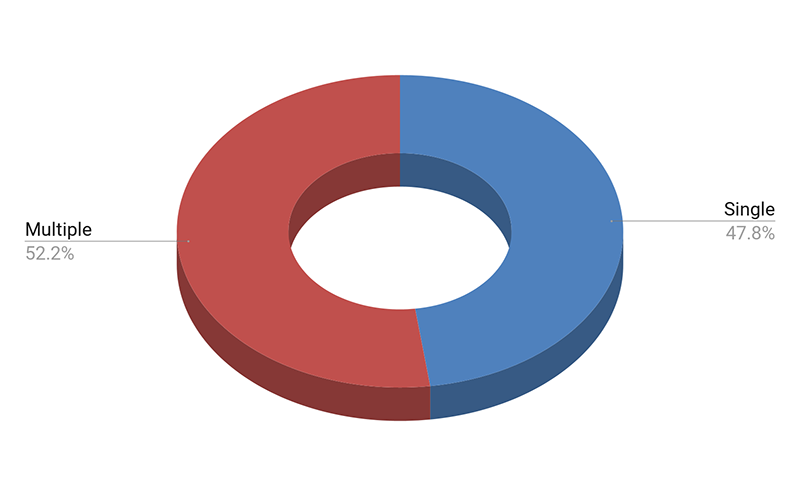
IICAH2024 Single vs Multiple Author Registrations
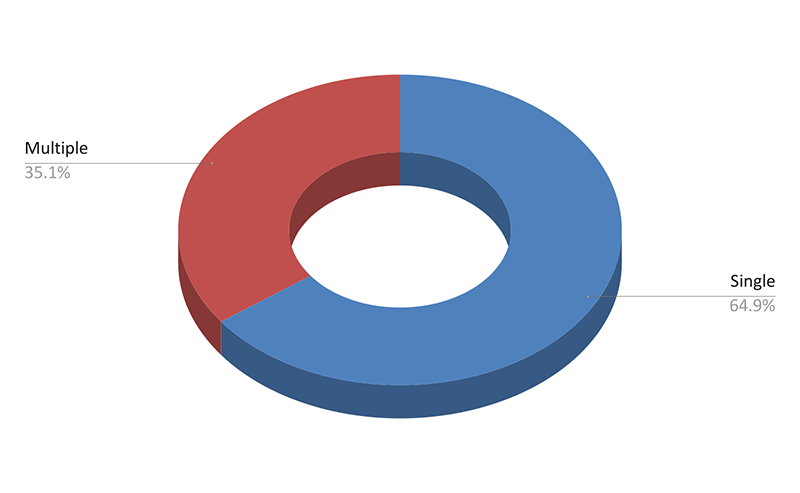
Conference Delegate Level of Education
IICE & IICAH2024 Delegate Level of Education (of 478 total delegates)
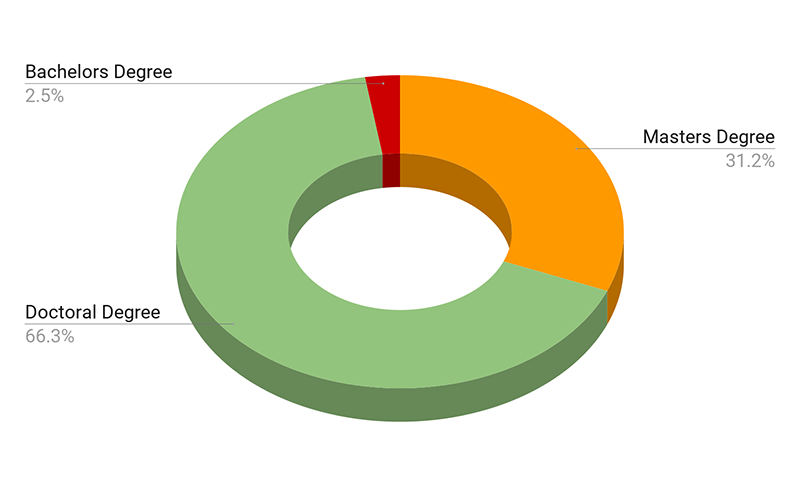
IICE2024 Delegate Level of Education (of 324 total delegates)
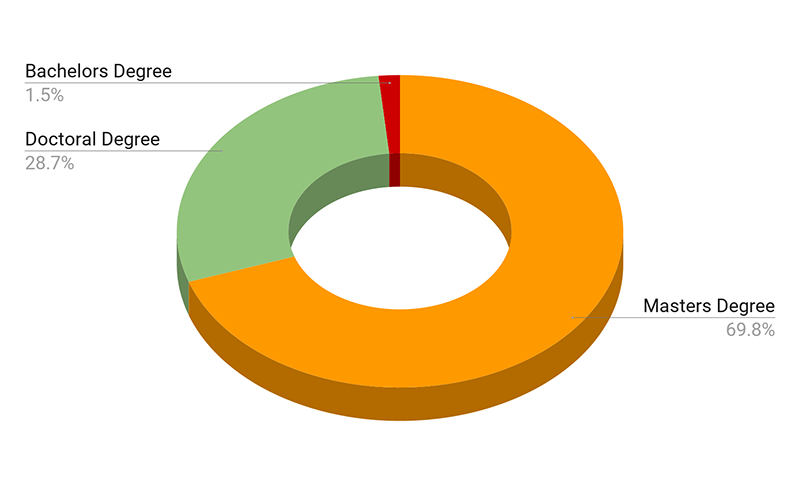
IICAH2024 Delegate Level of Education (of 154 total delegates)
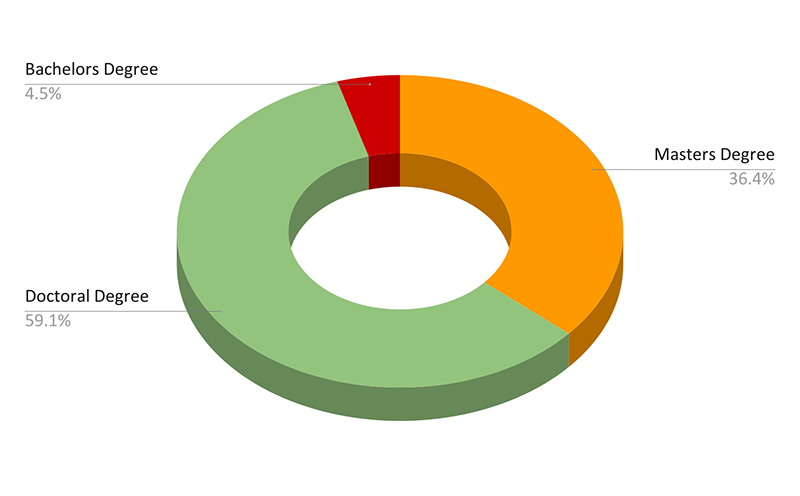
Conference Author’s Current Position
IICE2024 Top 5 Author Positions
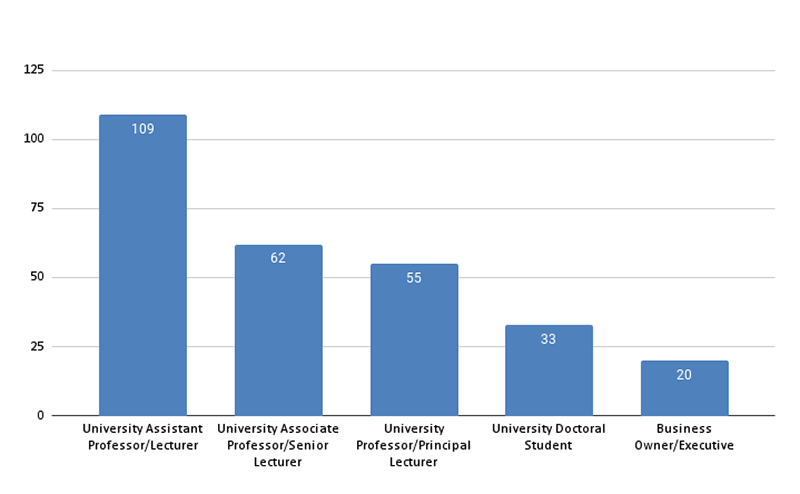
IICAH2024 Top 5 Author Positions
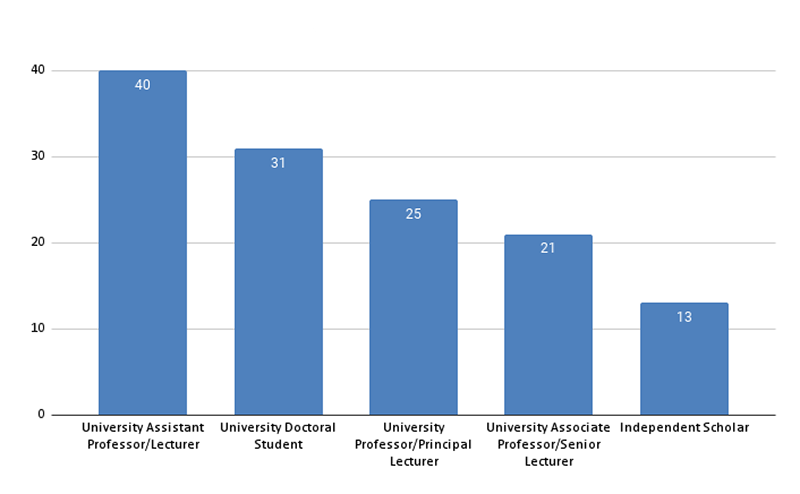
Conference Top 5 Streams
IICE2024 Top 5 Presentation Streams
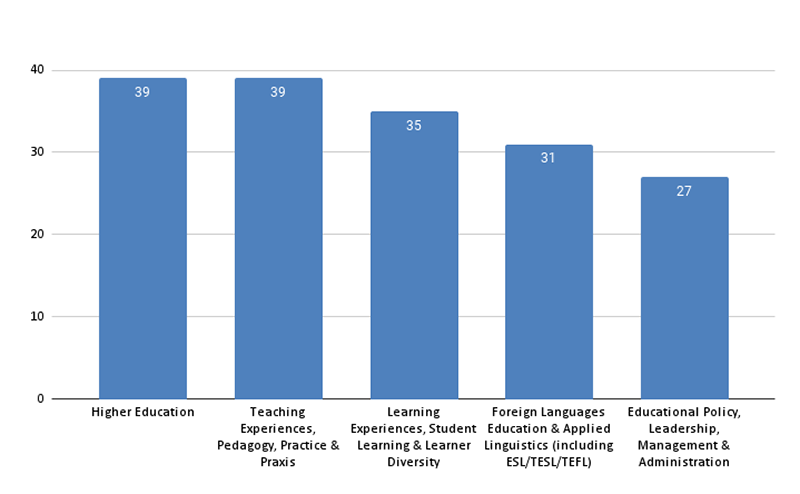
IICAH2024 Top 5 Presentation Streams
